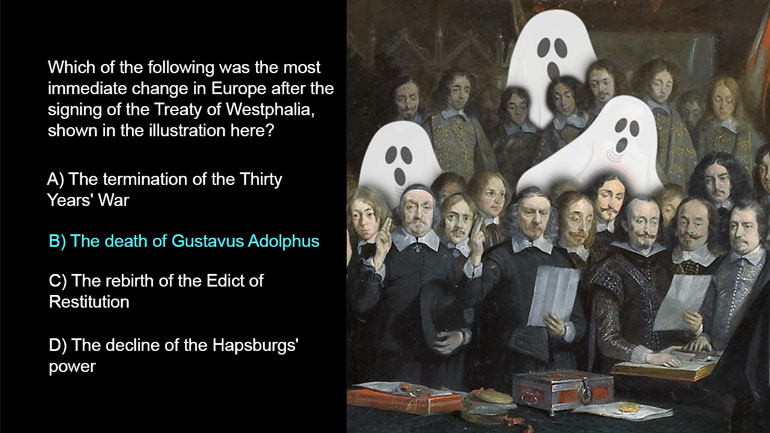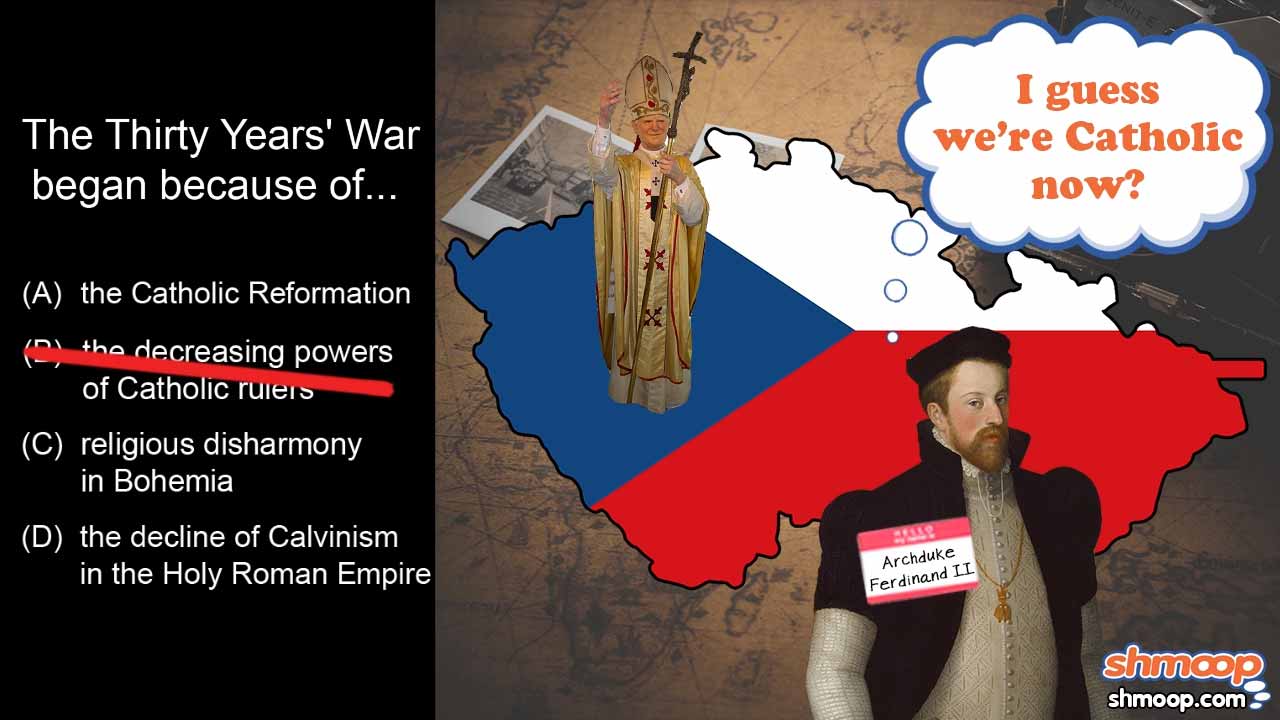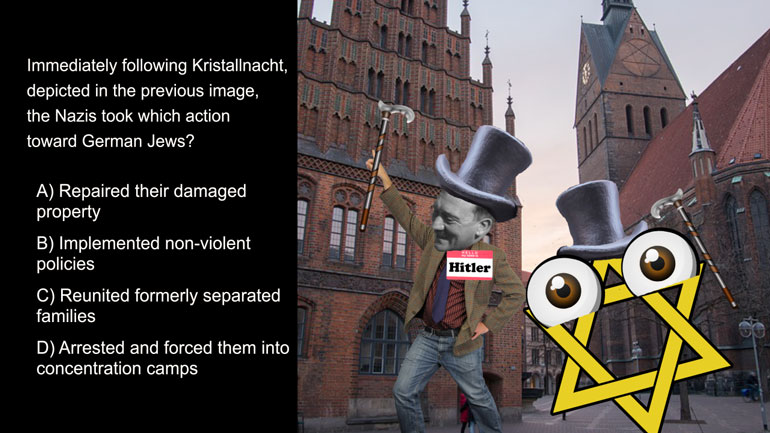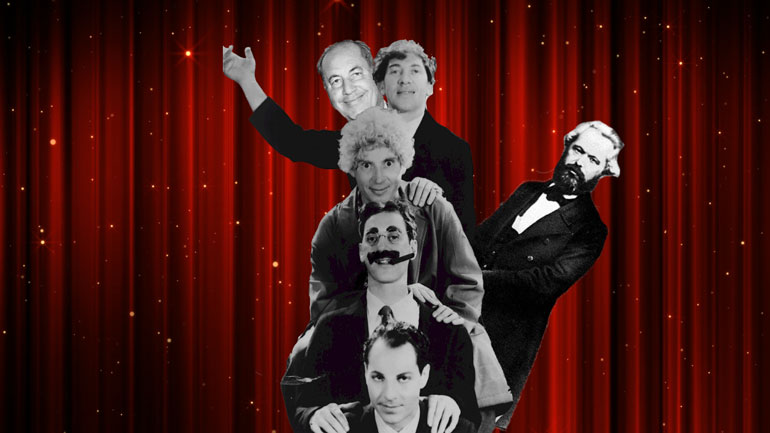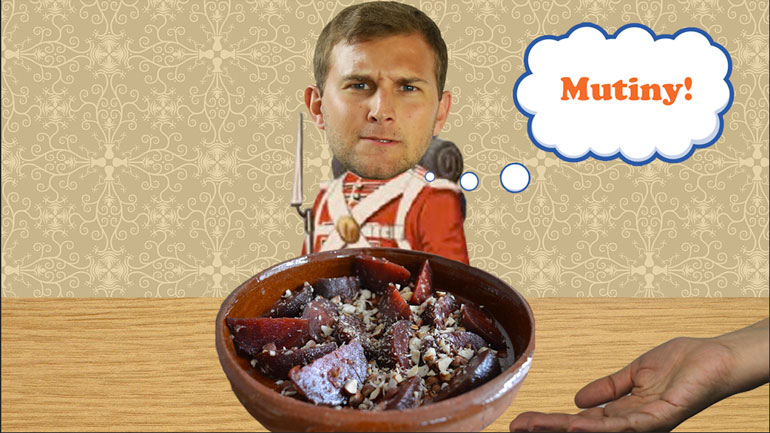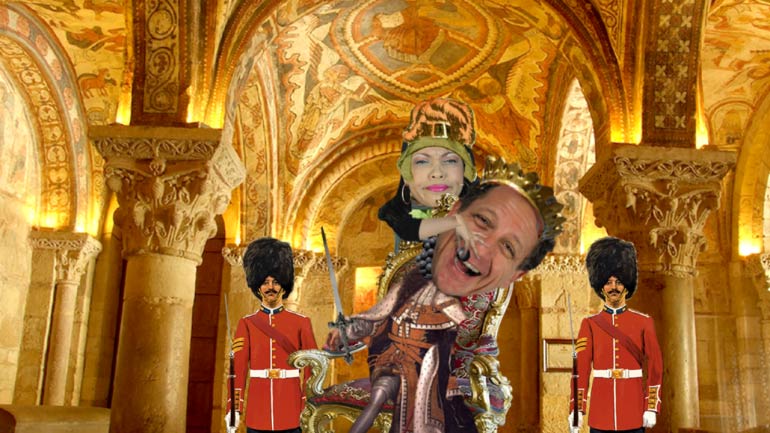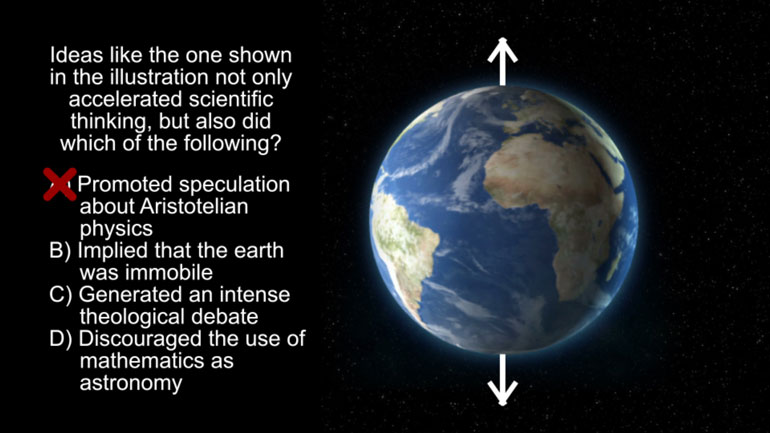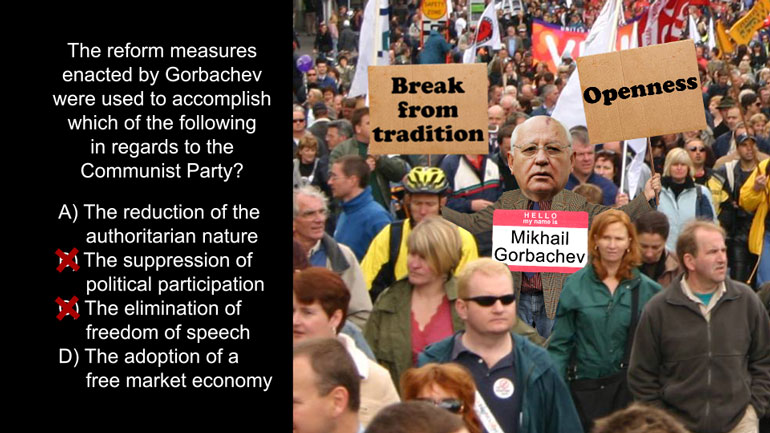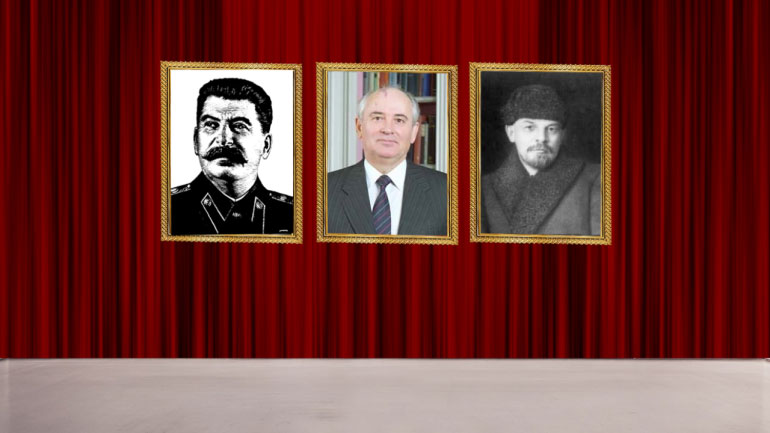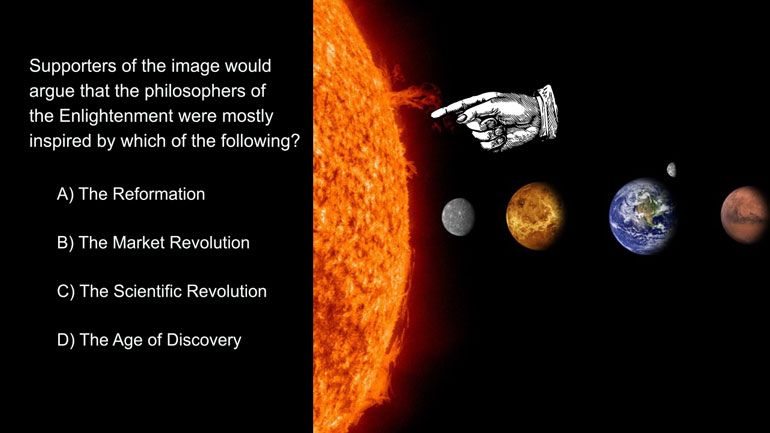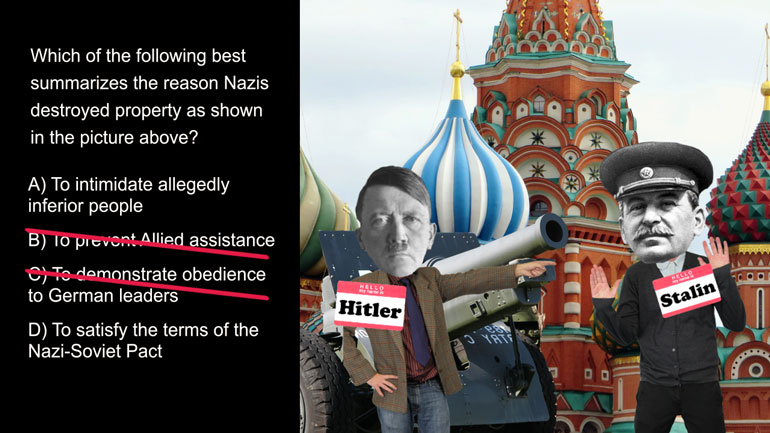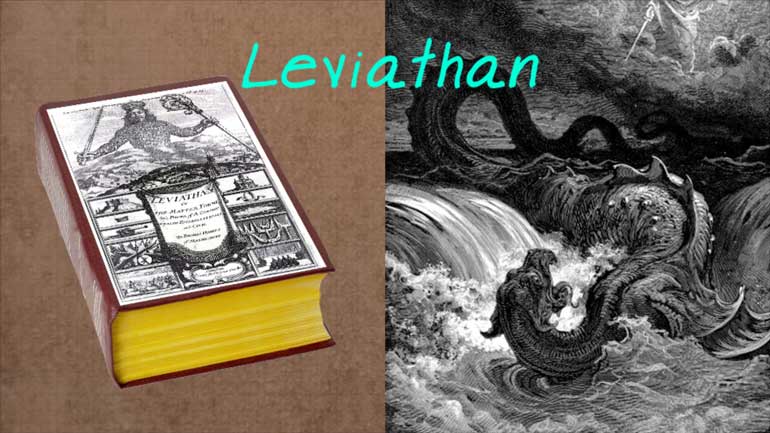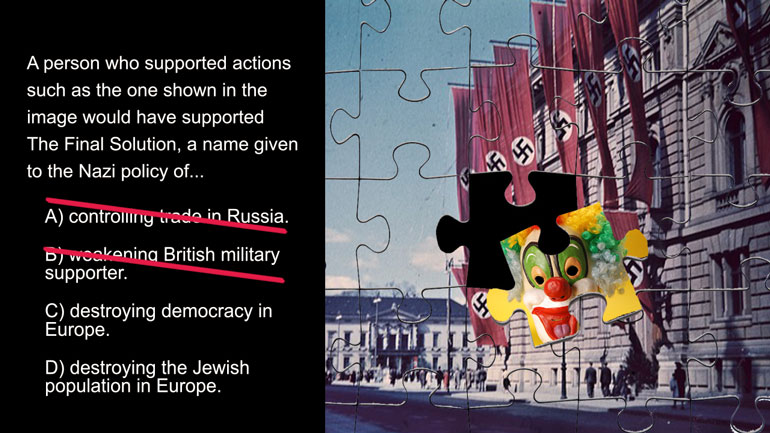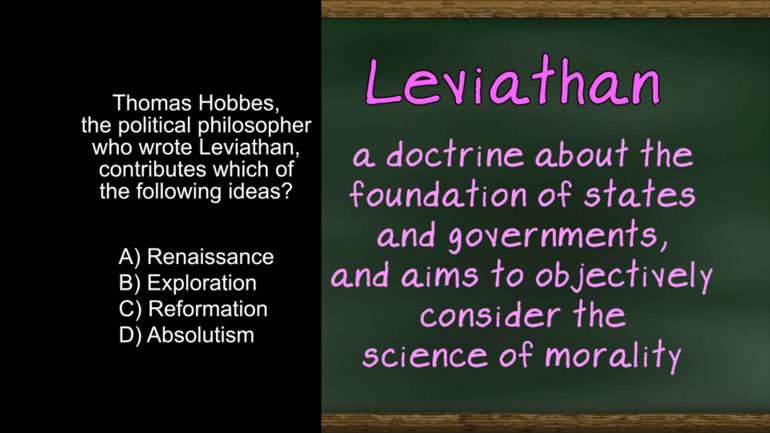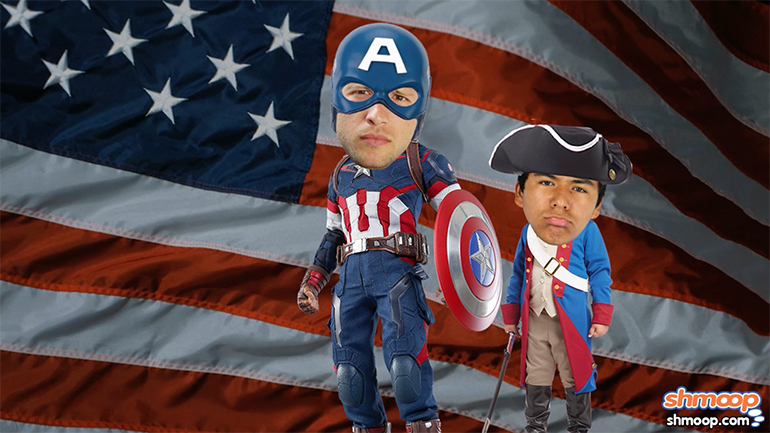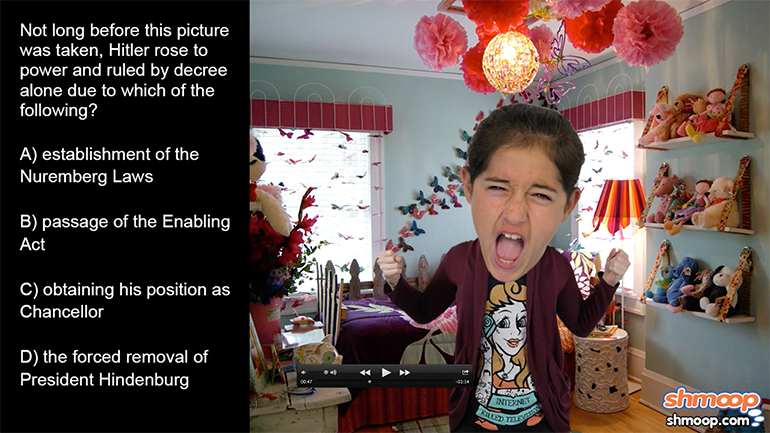ShmoopTube
Where Monty Python meets your 10th grade teacher.
Search Thousands of Shmoop Videos
AP European History Videos 26 videos
AP European History 1.5 Period 1: 1450-1648. Machiavelli's The Prince was similar to Thomas More's philosophy because it...what?
AP European History 2.3 Period 1: 1450-1648. Which of the following was the most immediate change in Europe after the signing of the Treaty of West...
AP European History 2.2 Period 1: 1450-1648. The man portrayed in the image was previously motivated to tack the Ninety-five Theses on the doo...
AP European History 2.3 Period 1: 1450-1648 32 Views
Share It!
Description:
AP European History 2.3 Period 1: 1450-1648. Which of the following was the most immediate change in Europe after the signing of the Treaty of Westphalia?
Transcript
- 00:04
And here's your shmoop du jour brought to you by Westphalia where Will
- 00:07
Smith was born and raised on the playground where he spent most of his [Westphalia and Will Smith appears]
- 00:11
days it is Westphalia West Philadelphia Fresh
- 00:16
Prince, no? all right we're moving on. Okay take a look at this image all right
- 00:20
right there...and here's today's question which of
Full Transcript
- 00:24
the following was the most immediate change in Europe after the signing of
- 00:28
the Treaty of Westphalia shown in the illustration here and here are your[People gathered signing the treaty of Westphalia]
- 00:32
potential answers.....Well believe it or not, this is not a painting
- 00:39
of a mustache convention really where the little hairbrush thingy's? it's actually
- 00:43
a bunch of famous commanders and emperors signing a treaty but a Treaty [Emperors and commanders signing a treaty]
- 00:47
of what was it B? A death warrant for the head of Gustavus Adolphus
- 00:54
well good old Gustavus was involved in whatever it was the treaty was about but [Gustavus outside on the street]
- 00:58
unfortunately he wasn't even alive at the time of signing while our boy
- 01:02
Adolphus was a big player in the war the king of Sweden in fact he died in battle [Adolphus wearing a crown and disappears]
- 01:06
before seeing its end And seeing as we don't see any ghosts in
- 01:10
the painting then just a bunch of really pale dudes there we can eliminate B. D
- 01:15
doesn't work either as the Hapsburgs an important royal house at the time [Hapsurg face on a Mario body playing in the videogame]
- 01:19
actually rose in power after this treaty was signed not declined as for C while
- 01:25
the Edict of restitution was more or less the anti Treaty of Westphalia
- 01:29
because while the treaty being signed here aims to end the 30 years war the
- 01:34
Edict of restitution aim to expand the war effort it was signed 11 years after [Paintings on a wall of the Edict of restitution]
- 01:40
the start of the 30 Years War well years before the day pictured in the image.
- 01:44
So that means the most immediate change after the signing of the Treaty of [Man signing a treaty]
- 01:47
Westphalia was A the termination of the 30 Years War that's right the image
- 01:52
you're looking at right now depicts the signing of the official end of Europe's [People signing the treaty to end the war]
- 01:55
most devastating war ever. Seriously 30 years that's nearly enough time left for
- 02:01
a midlife crisis we'll look forward to that. In contrast the
- 02:04
Anglo-zanzibar war lasted about 40 minutes barely enough time for a midday [soldiers yawns and falls to the floor asleep]
- 02:08
nap
Related Videos
AP European History Period 1: 1450-1648 Drill 2, Problem 1. As a result of the meeting in the image, which of the following occurred?
AP European History Period 3: 1815-1914 Drill 2, Period 1, Les Demoiselles d'Avignon represented the beginning of which of the following art m...
AP European History Period 3: 1815-1914 Drill 2, Problem 4. Paintings like the one depicted above were a direct reflection of what?
AP European History 1.2 Period 4: 1914-Present Not long before this picture was taken, Hitler rose to power and ruled by decree alone due to which...
AP European History 1.4 Period 3: 1815-1914. As evidenced through the passage above, Karl Marx was a passionate leader and is considered the father...

